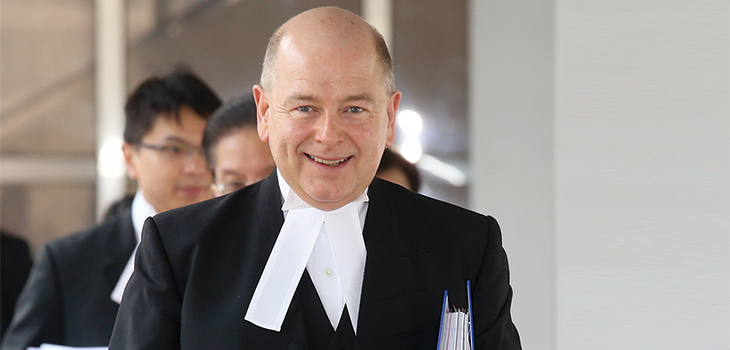
A lawyer’s willingness to represent a pariah was once acknowledged as the paradigm of professional honour and integrity. It is a trope which has made heroes of fictional lawyers, from Atticus Finch in To Kill a Mockingbird to James B Donovan in Bridge of Spies. Perhaps now, however, times are changing, and lawyers fall to be judged not by their own character and skill, but by the clients they come to represent. A lawyer who chooses not to turn away a controversial client may find themselves vilified and their reputation damaged by a very public association with their client.
Guns for hire?
Earlier this year, the respected Queen’s Counsel, David Perry (pictured), found himself under an intense media spotlight for accepting instructions from the Department of Justice of Hong Kong to represent them in the prosecution of nine pro-democracy activists for unlawful assembly under









